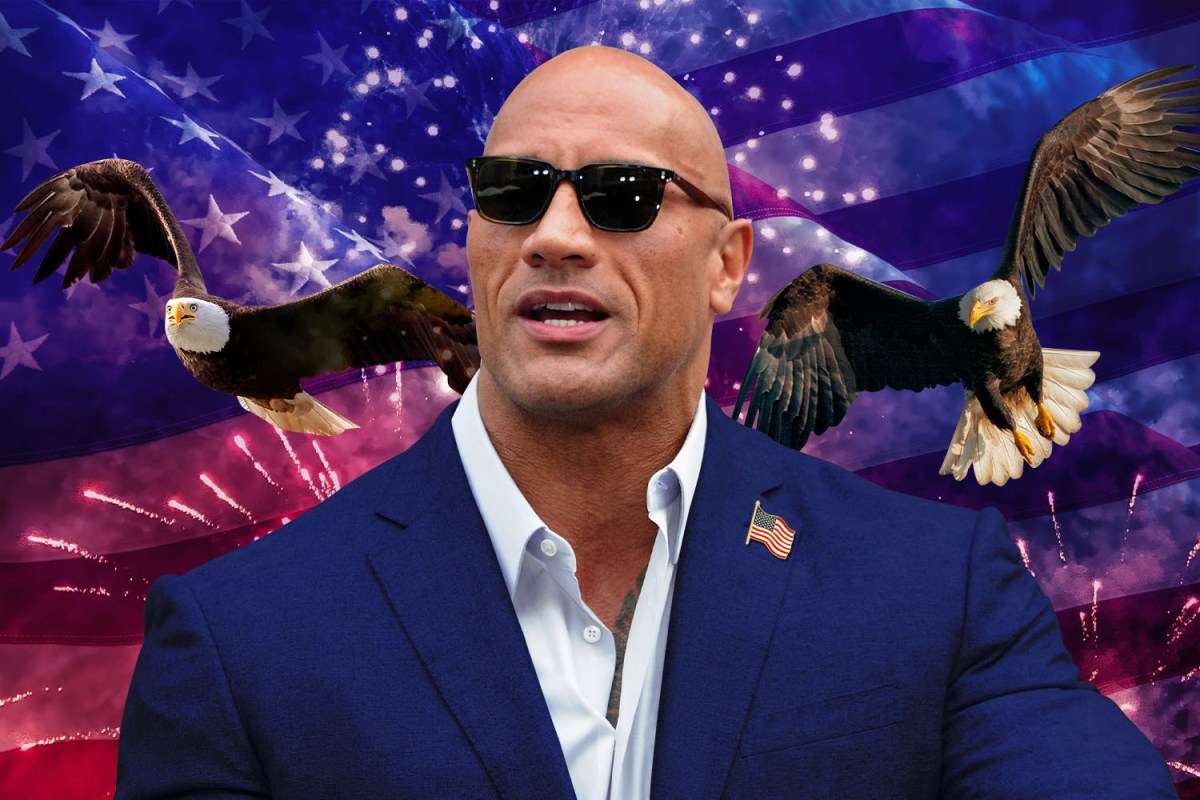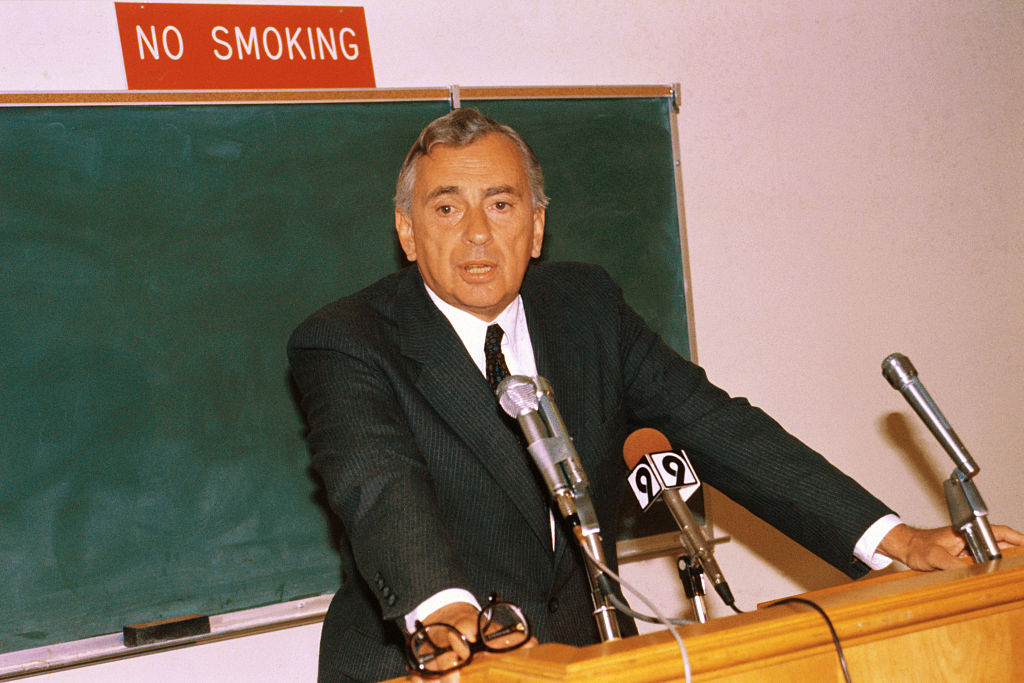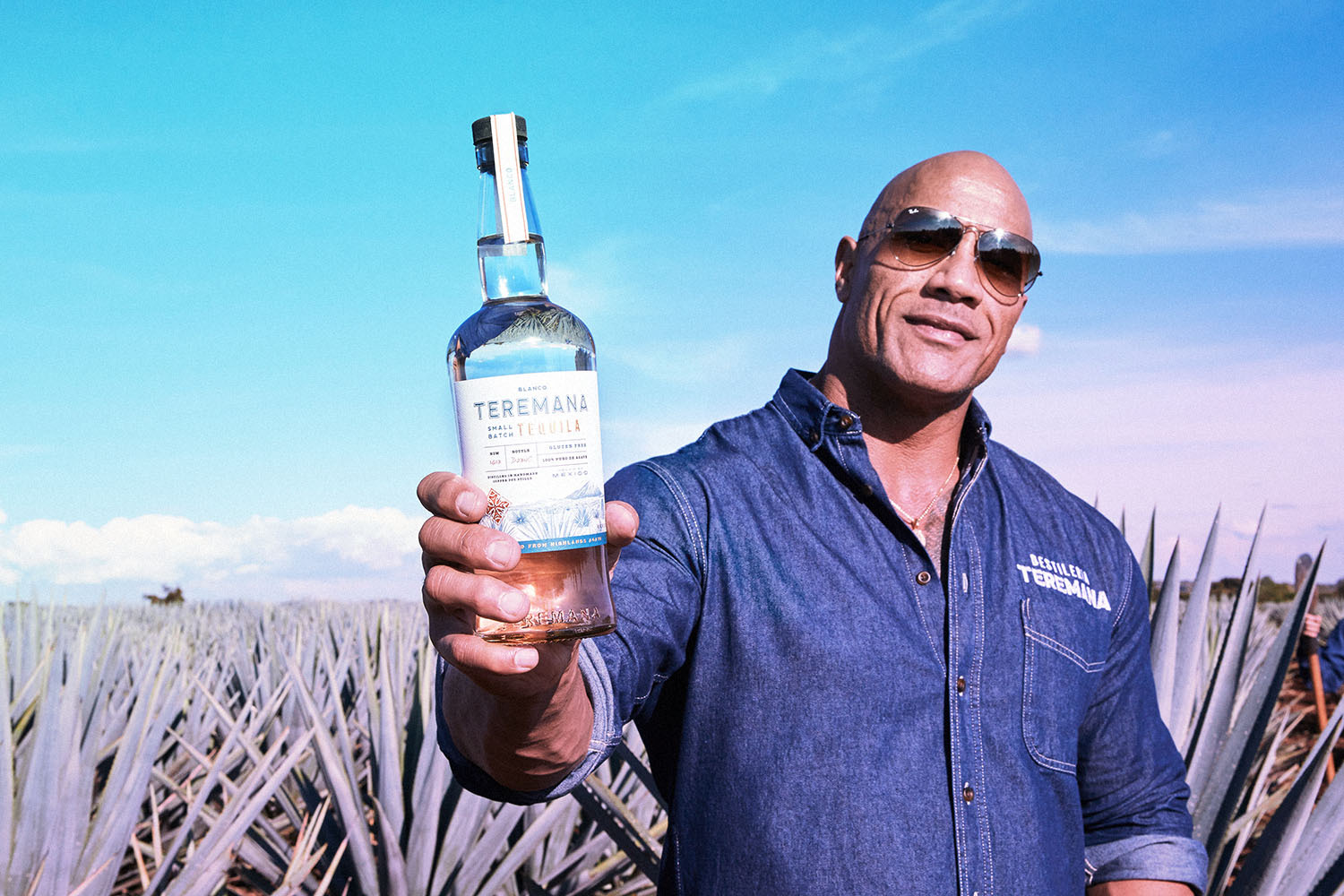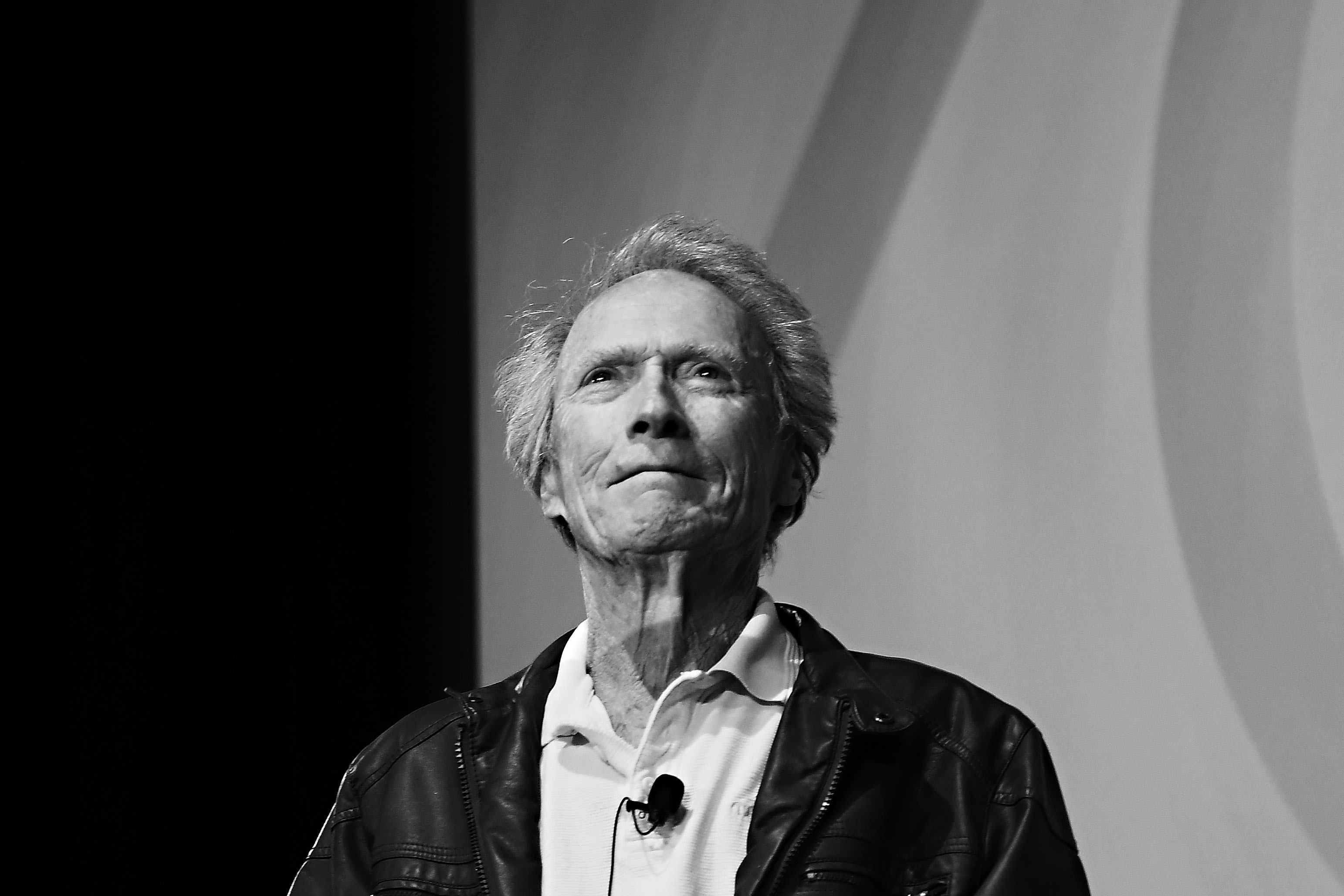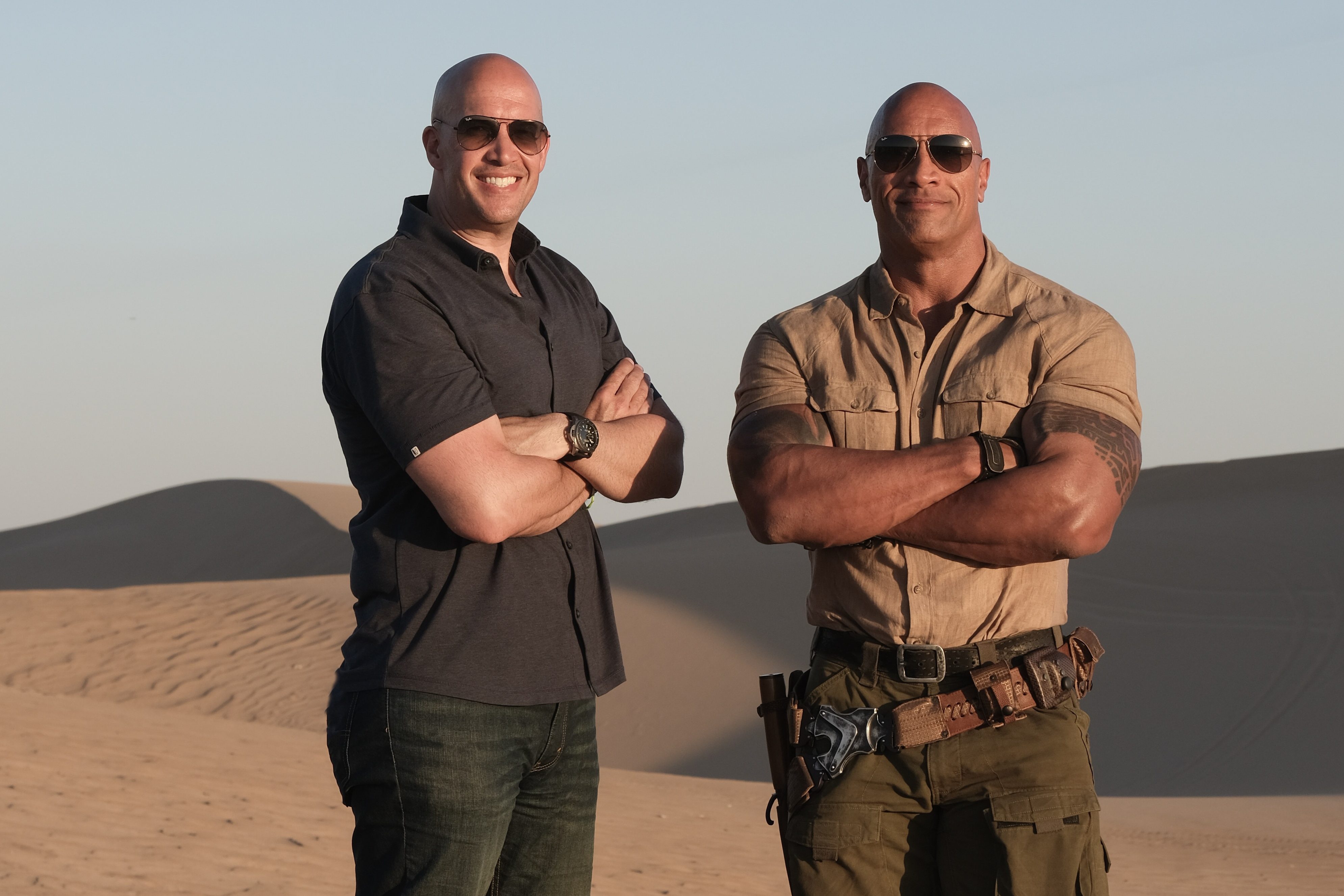Today, Dwayne Johnson gave the strongest indication to date that he is considering a future presidential candidacy when he shared a screenshot of a Newsweek article stating that as many as 46% of Americans would support him. “Humbling … I don’t think our Founding Fathers EVER envisioned a six-four, bald, tattooed, half-Black, half-Samoan, tequila drinking, pick up truck driving, fanny pack wearing guy joining their club – but if it ever happens it’d be my honor to serve you, the people,” read the caption. Whether he will actually follow through on that statement remains to be seen, though we talked to a number of Washington insiders last year who believe that his interest in a presidential run is sincere. You can read that story below.
For a brief moment in the kalidopedic hellscape of 2020, there was a chance. A tiny chance that, amid all the kakistocracy, Boomer hijinx, establishment buffoonery and dismay, a hero might break through the wall of American decline, shout Thomas Jefferson, sucka! with the force of a gale and save us all from ourselves. That hero would have become legend, that hero would have invigorated the divided and disaffected masses, that hero would have been forever. That hero would have been Dwayne Douglas “The Rock” Johnson.
On June 5 of this year, The Rock was listed by oddsmakers as the third-most likely person to win the American presidency. “Bookmakers currently have ‘The Rock’ priced at +40000,” one report went, “which suggests there’s only a 0.2 percent chance the WWE star will win the 2020 Election.” That week, a little more than three percent of bettors laid down their markers on The Rock, odds that would have made Buster Douglas in Tokyo look like a lock.
The catalyzing episode for The Rock’s surge wasn’t the announcement of a third-party electoral stunt or the revelation of some fast or furious putsch. It was simply a monologue. In an Instagram post on June 3, Johnson delivered a strong indictment of the president and made a heartfelt call for justice in the wake of police violence and ongoing civil unrest. America is “crippled” and “on its knees,” Johnson explained, and it needed leadership.
Nearly anything that Johnson broadcasts to his 200 million Instagram followers probably qualifies as viral, but this one made national news and stoked considerable pundit chatter. “The Rock just gave a more presidential speech than Trump,” one CNN headline offered. “Maybe one day that galvanizing leader will emerge,” the caption of the post augured, but when that might happen was anybody’s guess.
While, for today at least, it seems all but determined that The Rock will not be sworn in on the Capitol Building’s West Front come January 20, 2021, the notion of a third Johnson U.S. presidency has proven itself to be surprisingly durable. Two weeks after his Instagram address, Johnson received the coveted (albeit unsolicited) Joe Rogan endorsement for the presidency. But the link between the People’s Champ and the People’s House actually goes back an entire score.
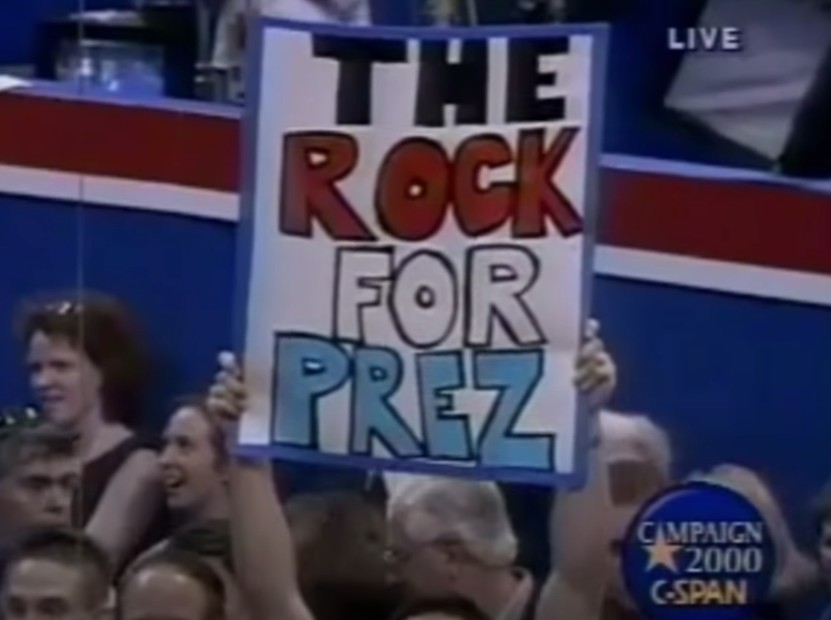
Back in 2000, The Rock — as he was singularly known to the world then —was invited to the Republican National Convention in Philadelphia. He may have been the most curious standout even among a list of attendees that included Gerald Ford and Nancy Reagan, sure, but also Ben Stein, Bo Derek, Bruce Willis and Hank Williams, Jr. There he bantered with the media, including one truly gobsmacked C-SPAN reporter, about the unheralded, more wholesome attributes of pro wrestling before addressing the convention body with his sunglasses on.
What future historians may determine notable about his 2000 RNC appearance is that The Rock, who was not yet 30 years old, was already displaying his calculating political savvy to the nation. In Philadelphia, Johnson didn’t endorse George W. Bush or even mention his name. Instead, he spoke of an appreciation for the RNC organizers, who had chosen to consider the hero of tens of millions of wrestling fans worthy of a spot on the dais. You might say he was there solely to establish, if you will, The Rock’s bloc.
“Thank you for recognizing the passion and potential power of those fans, who will no doubt elect the next President of the United States,” the hulking showman offered in a clever sleight of hand. In hindsight, the only potentially polarizing thing that Johnson did at the RNC that year was end his speech by introducing “America’s best-known former high school wrestling coach” Dennis Hastert, then the Speaker of the House, whose coaching legacy would eventually face some closer scrutiny.
One truth about career trajectories in American politics, especially in recent decades, is that they can both ignite and incinerate in virtually no time at all. One week after The Rock would cook at the 2000 RNC, Barack Obama, then an unknown junior member of the Illinois State Senate, would try and fail to secure a floor credential at the 2000 Democratic National Convention in Los Angeles. You might remember how the rest of the story goes: At the following DNC in 2004, Obama would deliver the keynote address, and, at the one after that, in 2008, Obama would formally receive the party’s presidential nomination. And, finally, Obama would ultimately be succeeded in office by someone whose resume held no political laurels at all.
“There are a lot of things about the American political system that make it particularly vulnerable to this,” Libby Watson, who covers politics for The New Republic, tells InsideHook. “Obviously, there’s the fact that anyone can run for president, essentially. In the U.K., for example, the prime minister is always the person who leads the party that has the most votes, so they can create a government and parliament. For someone to become prime minister, they have to become an MP first and that’s a whole thing. So it’s very difficult for an outsider to infiltrate the political system very fast.”
This dynamic speaks to the quixotic ideals that make America so enchanting and infuriating. The presidential bar is low, which means that any 35-year-old person of any background (other than foreign-born, naturally) can ascend to the highest office. Millard Fillmore, Lincoln and LBJ are just a few in a handful of presidents who rose up from poverty. Herbert Hoover was orphaned young and worked in the mines. Grover Cleveland married his adopted daughter and was elected to non-consecutive terms, which aren’t exactly hardships per se, but are interesting all the same.
Within the life and times of Dwayne “The Rock” Johnson exists a narrative arc that could very pass for campaign biography. “In 1995 at just 22 years old, Johnson had been cut from the Canadian Football League and had just $7 bucks in his pocket,” went one recent piece of Rock hagiography. “It was in this pivotal moment he decided to chart his own course, and by putting in the work with his own two hands, Johnson has become a global entertainment icon, entrepreneurial force and co-founder of Seven Bucks Companies.”
It’s all there. Bootstrapping and American individualism. A gritty triumph over childhood poverty, career adversity, financial insecurity, and the critical reviews for “The Scorpion King” through sheer force of will. From the summer of 2000 to the summer of 2020, The Rock would ascend from niche wrestling hero to cultural ubiquity, amassing mainstream bona fides and Hollywood bankability to the tune of the “highest-paid actor on earth” status along with a reputation for being an all-around reasonable guy. But is all that enough to truly boost him into the upper echelons of presidential conjecture?
I reached out to David Graham, who writes about politics for The Atlantic, to gauge his feelings about how America would react to a Johnson run in 2024. His response suggests that these times are too uncertain to know. “I just have no idea how to think about it,” he wrote back. “I could have given you some crisp pundit prognostication even a year ago. But you want me to guess how the nation would react to a Rock run now, without knowing who will win in November, much less what will happen with COVID and the economy?”
But then again, that’s sort of the point. The sweet nerd who held up that “The Rock For Prez” sign at the RNC in 2000 wasn’t trying to launch an insurrection against George W. Bush, he was indulging in an act of either fandom or of fantasy. And if there were ever a time where the pull of a well-liked, generally nonpartisan figure would resonate most, it seems like right about now would be good.
“The thing with The Rock that people always bring up is that he’s this universally beloved figure,” Watson added. “No one can really object to anything about The Rock, which is the opposite of Trump. Trump is this extremely polarizing, negative figure who capitalized on these very negative things. In this world where The Rock succeeds, I think it’s sort of a fantasy that you could have this figure who wins by being universally beloved and becomes the president that everyone can get behind.”
Unfortunately, for the fast-growing number of escapists in the American body politic, the devil remains in the details. Aside from a pro-awesome, pro-the Troops, anti-racism agenda, it’s hard to know exactly what The Rock stands for, besides the flag. Johnson didn’t endorse a presidential candidate in 2000, but he also didn’t even endorse one in 2016, despite being solicited by both major party candidates.
It was only late last month that Johnson finally chose a campaign to support in 2020, and in doing so, flexed the maneuver with what his one-time wrestling comrades might characterize as some cheap pop. “As a political independent and centrist for many years, I’ve voted for Democrats in the past and as well as Republican,” Johnson wrote. “In this critical election, I believe Joe Biden and Kamala Harris are the best to lead our country, and as my first ever (public) Presidential endorsement, I proudly endorse them for the presidential office of our United States.”
Beyond all the hand-wringing about Johnson’s potential platform, public opinion, or his viability is the most important question of all: Does he really actually want to do this? And while many in the brotherhood of the wealthy, naive, and famous in America love to play coy or cash in on the press that often accompanies whispers of presidential ambition, The Rock stands out for being unusually candid and unusually consistent about his interest in the job. (Subtlety may not suit the man who scooped the presidential announcement about the death of Osama Bin Laden.)
But also, to his credit, The Rock seems aware of the distaste held by many for celebrity candidacies. Dropping by The Late Show back in 2018, Johnson confessed to Stephen Colbert that he had “absolutely” been thinking about running for president after a Washington Post story suggested that it could happen and shrewdly offered some caveats. “But, at the same time, Stephen, I mean look, I’m not delusional at all. Like I feel like I, you know what it is? I need that thing… oh, experience.”
That The Rock seems committed to responsibly bone up on policy, mainline some Tocqueville, or study the levers of power before diving into a presidential run is nice. But it ultimately says less about his character than it does about a political system that would facilitate his candidacy in the first place. Then again, for the inevitable showdown with Putin, it might all be worth it.
This article appeared in an InsideHook newsletter. Sign up for free to get more on travel, wellness, style, drinking, and culture.
